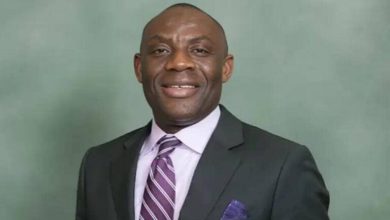Naira devaluation: Nigerian students face tough times in UK, tuition soars by 60%
Naira devaluation: Nigerian students face tough times in UK, tuition soars by 60%

Many Nigerian students are facing tough times in the United Kingdom after the naira equivalent of their tuition fees increased by over 60 per cent following the recent move by the Central Bank of Nigeria to unify the nation’s foreign exchange rates.
About two weeks after President Bola Tinubu promised to unify the nation’s multiple exchange rates, the apex bank decided to float the naira at the Investors and Exporters’ Window of the foreign exchange market. Since then, the naira has fallen from N471/dollar to N750/dollar and N589.4/pound to N957.2/pound.
This has led to about 60 per cent increase in tuition fees for students in the UK.This rise in exchange rate has put more pressure on many Nigerians that are schooling in the UK and beyond.
The UK is one of the destinations of choice for many Nigerians as 128,770 Nigerian students enrolled in universities in the United Kingdom between 2015 and 2022 according to data from the Higher Education Statistics Agency of the UK.
According to the CBN, study-related foreign exchange outflow to the UK rose to $2.5bn in 2022. Nigerian students and their dependants in the United Kingdom contribute about £1.9bn annually to the UK economy, according to an analysis by SBM Intelligence.
Many of these students may now struggle to pay the balance of their tuition due to the sharp decline in the value of the naira.
Presently, UK universities are currently on break, and students lament hike. Speaking with a Nigerian student resident in Manchester, Adejoro Deborah, who sounded stressed she said the policy is affecting those of us here and even intending students. My sibling has had to forfeit her admission because of this policy.
Adding that many students have fallen victim to online scammers just because they want to buy pounds, a friend of mine, for example, was a victim of third-party purchase as the banks at home are not dependable.
Another Nigerian student studying in Leeds explained that the major challenge was that many kept their tuition fees in their naira account at the former rate.
The student said, Now they have to start looking for more money because the rate has gone up. If the official rate is not different from street rate, so what’s the essence of waiting for several weeks for your bank when you can just get it from third-party platform. It has only put more pressure on the students to look for more money.
The student explained that putting N5m in your account in March when the rate was around N560/£, that means it will pay around £9k tuition fee, but by July, the N5m will only be able to pay around £5k since the rate is now around 1k/£, so that’s where the real problem is. You need to start looking for an additional £4k. That’s the challenges many students are facing.
Another Nigerian, who is currently studying at Liverpool John Moores University, has become stranded after the school withdrew his access to the school portal.
His access to the university’s portal was withdrawn by the school following his failure to pay his tuition. The Nigerian (name withheld) could not raise the required 4,800 pounds to complete his tuition.
Narrating his ordeal, he said, The school has withdrawn my access to its platform. As a result, I can’t check the results of my last exam. Everything is done via the platform. I cannot also access my official email given by the school. I can’t attend both online and in-person classes again. It is very frustrating, I am completely shut out.
The depressed student, who is allowed to work for 20 hours a week as a student, said he could not get a better job because prospective employers were demanding proof that he is allowed to work as a student.
He added, in fairness to the school, I was given several deadlines which I missed. I could not pay because I was unable to raise enough funds to buy foreign exchange. The exchange rate is very high.
Another student (name withheld) of the school, said he was on the verge of losing his studentship before he managed to borrow money from friends in Nigeria to pay his tuition.
He shared a copy of a letter that had been addressed to him giving him a final deadline to pay the outstanding tuition.
The letter was sent by the Head of Registry Services of the school. The letter read in part, “According to our records there is an outstanding balance of £4800 on your university tuition fee account. LJMU has advised you of this situation via emails to both your LJMU and personal email addresses.
“Despite this correspondence, the debt remains outstanding and accordingly, we are now arranging for you to be withdrawn as a student of the University. If this happens, UK Visas and Immigration will be informed that you are no longer a student at LJMU.”
Meanwhile, students who depend on FX forex are also complaining of the effect of the exchange rate on forex, While lamenting the effect of the new forex policy, a parent, Akinjagunla Paul, though resident in the United Kingdom begged the President to help out students who applied for Form as before the new FX regime was implemented.
He said, It is important for the President to be informed that he needs to urgently grant concessions to Nigerian students abroad who initiated their Form A requests for payment of school fees before the new FX regime was introduced, rates have increased from about N550 to N1,000.






